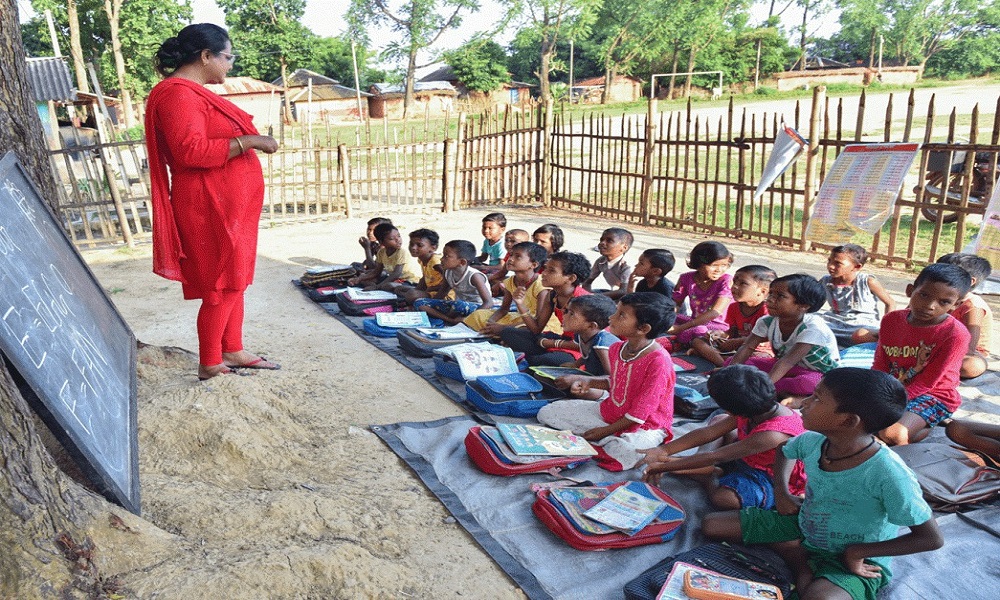Early childhood education (ECE) plays a pivotal role in shaping the future of individuals and societies. By providing children with a strong foundation during their formative years, ECE can significantly contribute to reducing poverty and promoting economic development.
Understanding the importance of early childhood education and implementing effective programs can help break the cycle of poverty and create a more equitable society.
The Impact of Early Childhood Education on Poverty Reduction
Cognitive and Emotional Development:
ECE programs focus on the holistic development of children, including cognitive, emotional, and social skills. Children who attend high-quality early education programs are more likely to develop critical thinking, problem-solving abilities, and emotional intelligence. These skills are essential for academic success and future employability, reducing the likelihood of poverty.
School Readiness:
Early childhood education prepares children for formal schooling by introducing them to basic literacy and numeracy skills. Children who attend ECE programs are more likely to perform well in school, leading to higher graduation rates and better job prospects. This preparedness is particularly crucial for children from disadvantaged backgrounds, as it helps level the playing field.
Parental Engagement and Support:
ECE programs often involve parents and caregivers, providing them with resources and support to enhance their children’s development. Educated and informed parents are better equipped to provide a nurturing and stimulating home environment, which further contributes to their children’s success. This engagement also helps parents understand the value of education, promoting a culture of learning within the family.
Long-Term Economic Benefits:
Investing in early childhood education yields substantial long-term economic benefits. Children who receive quality early education are more likely to become productive, tax-paying citizens, reducing the burden on social welfare systems. Additionally, they are less likely to engage in criminal activities, leading to safer and more stable communities.
Breaking the Cycle of Poverty:
ECE programs can break the intergenerational cycle of poverty by providing children with the tools they need to succeed. Education empowers individuals to pursue better job opportunities and achieve financial independence. When children from low-income families receive a strong educational foundation, they are more likely to escape poverty and improve their socio-economic status.
Key Strategies for Effective Early Childhood Education
Access to Quality Programs:
Ensuring that all children, regardless of their socio-economic background, have access to high-quality early childhood education is crucial. Governments and organizations should invest in building and maintaining ECE centers that meet rigorous standards of care and education.
Training and Supporting Educators:
Well-trained and motivated educators are the backbone of successful ECE programs. Investing in the professional development of early childhood educators ensures that they have the knowledge and skills to provide high-quality instruction and care.
Comprehensive Curriculum:
An effective ECE curriculum should address all areas of a child’s development, including cognitive, physical, social, and emotional domains. It should be culturally relevant and inclusive, meeting the diverse needs of children and their families.
Parental Involvement:
Encouraging and facilitating parental involvement in high-quality early childhood education enhances the impact of these programs. Parents should be provided with resources and support to reinforce learning at home and create a positive educational environment.
Public-Private Partnerships:
Collaborations between governments, non-profits, and the private sector can help expand the reach and quality of ECE programs. These partnerships can mobilize resources, share expertise, and implement innovative solutions to improve early childhood education.
Policy and Advocacy:
Strong policies and advocacy efforts are needed to prioritize high-quality early childhood education at the national and local levels. Governments should allocate adequate funding and develop policies that support the expansion and improvement of ECE programs.
CONCLUSION:
Early childhood education is a powerful tool for reducing poverty and promoting economic and social development. By investing in high-quality ECE programs, we can provide children with the skills and opportunities they need to succeed, breaking the cycle of poverty and creating a brighter future for all.
At Fikrah, we are dedicated to supporting and advocating for early childhood education initiatives that empower children and transform communities. Together, we can harness the transformative power of early education to build a more equitable and prosperous world.
Click here to know more about “Education is not just a need but a tool to alleviate poverty”

